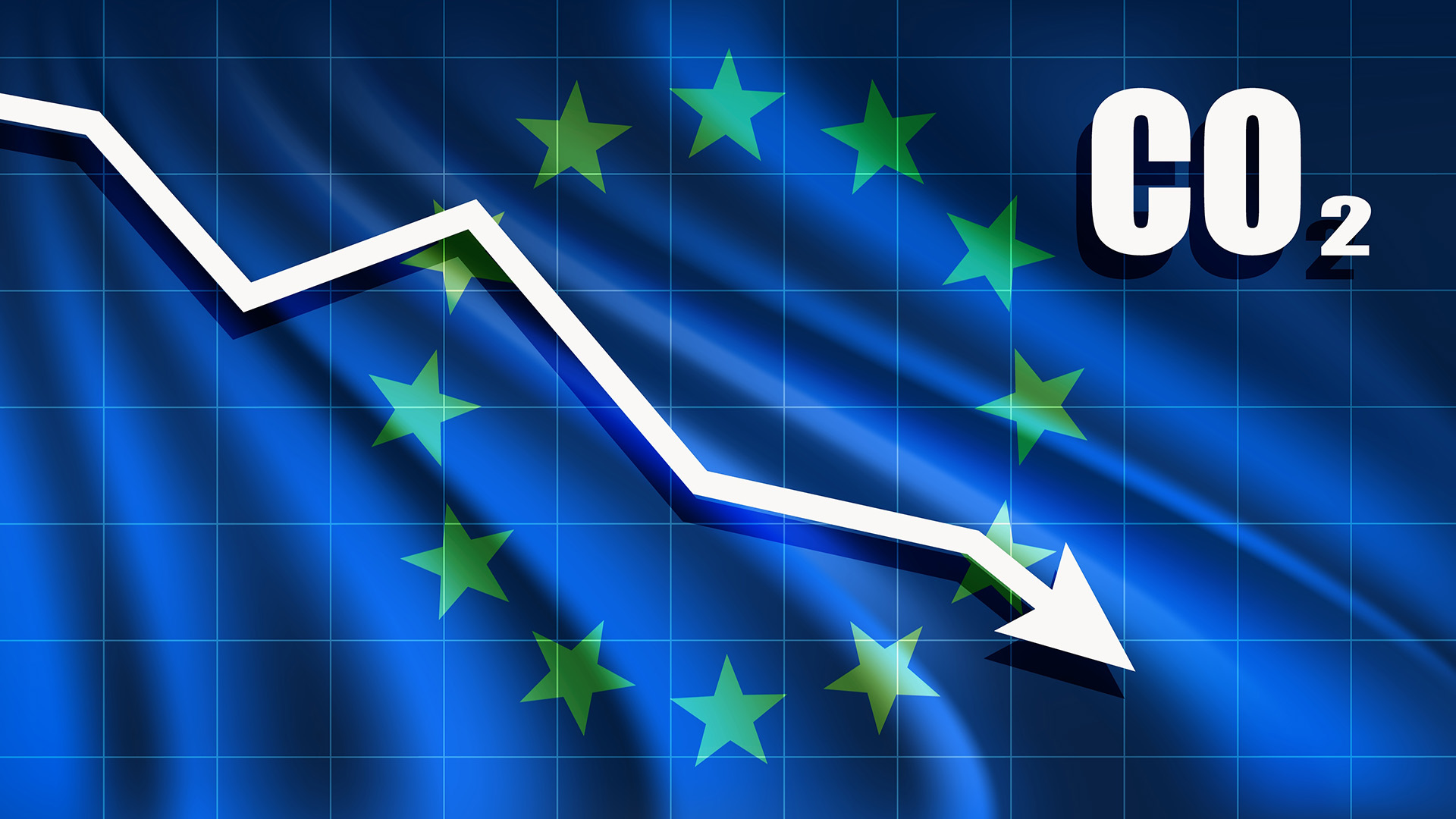Introduction
Around the globe, corporations face growing pressure from stakeholders – including shareholders, customers, employees and regulators – to make progress on ESG issues like sustainability. The pressure is often industry-wide. But businesses must achieve this progress without running afoul of competition laws, which differ across jurisdictions, and competition enforcers, which have taken divergent and often politicized approaches with regard to sustainability. This is the first installment examining the complex enforcement environment for ESG initiatives and focuses on the United States. The next installment will focus on the European Union, its member states and the United Kingdom.
On December 31, 2022, Republican members of the House Judiciary Committee sent a letter to an investor-led initiative that pursues decarbonization and greenhouse gas reduction at companies in which its members invest. The House letter expressed concern that the initiative “seems to function like a cartel.” Its authors asserted authority to conduct “oversight of how coordinated efforts to push environmental, social and governance (ESG) policies could violate antitrust laws” and expressed skepticism that “this collusive behavior is not anti-competitive.” The letter repeated earlier requests for the production of documents and information, in order “to examine unlawful restraints of trade and commerce,” and it warned that, in the absence of voluntary production, “the Committee may … resort to compulsory process.” The letter closed with an assurance that “the Committee will continue to pursue this oversight matter into the 118th Congress,” which began on January 3, 2023.
The House letter echoes a November 2022 letter from five Republican senators to several US law firms regarding the firms’ ESG practices, particularly with regard to sustainability. The Senate Letter cautioned that “there is no ESG exemption to antitrust laws” and said that the firms should advise clients on “the risks they incur by participating in climate cartels and other ill-advised ESG schemes.” The senators declared that “Congress will increasingly use its oversight powers to scrutinize the institutionalized antitrust violations being committed in the name of ESG, and refer those violations to the FTC and the Department of Justice.”
These letters spotlight the tension between sustainability goals, which can suggest collective actions in the same industry (e.g., standard-setting or sector-wide goals), and antitrust laws, which generally prohibit cooperation among competitors when doing so would raise prices, restrict output or decrease consumer choice. By using the language of “cartels,” both letters also invoke the possibility of criminal enforcement in the United States, where antitrust cartel offenses can lead to significant criminal fines for corporations and imprisonment for individuals.
Both letters also portend congressional investigations. Republicans now control the House of Representatives, and one of the signatories of the House letter chairs the powerful House Judiciary Committee.
Finally, the letters draw into starker relief the growing divergence between enforcement approaches with regard to handling the intersection of sustainability initiatives and antitrust enforcement within the United States.
US antitrust perspective on ESG
In the United States, corporations must navigate a federal system, which empowers federal enforcement agencies and state attorneys general (state AGs) within their respective jurisdictions. While federal and state enforcers often coordinate, there is no requirement that they do so, and states independently can take actions that may be inconsistent with or contrary to those made at the federal level. Additionally, Congress may conduct its own investigations and refer potential violations to antitrust enforcers.
Federal enforcement positions on sustainability
US law makes clear that even commendable policy goals like sustainability have no impact on the legality of an alleged antitrust violation, and the Supreme Court has held that “social justifications proffered for respondents’ restraint of trade … do not make it any less unlawful.”
The competition enforcement agencies in the United States – the Department of Justice’s (DOJ) Antitrust Division and the Federal Trade Commission (FTC) – share responsibilities for civil enforcement of federal antitrust laws. Additionally, the DOJ investigates and prosecutes antitrust cartels criminally in partnership with federal law enforcement agencies like the FBI.
To date, neither the Antitrust Division nor the FTC has signaled that it will do anything other than apply the law as it exists, regardless of the merits of an underlying sustainability objective.
In August 2019, identical letters from the then-Assistant Attorney General (AAG) of the Antitrust Division to four auto manufacturers illustrated the enforcement risks corporations face from working towards sustainability goals at the industry level. The automakers had announced a month earlier their agreement with a California regulator to adopt fuel efficiency standards that were stricter than the Trump administration’s proposed federal standards. In the letters, the then-AAG wrote that the Division had learned through reporting of a possible agreement between the carmakers and “we are concerned that [the recipient’s] agreement with three automobile companies may violate federal antitrust laws.”
The theory of harm was that the automakers’ agreement potentially restricted competition by limiting the types of vehicles that were offered to consumers. DOJ later defended the investigation against claims that it was politically motivated, saying that “If the automakers had in fact entered into a horizontal agreement, it would have given rise to a potential antitrust violation. This is the case irrespective of whether the subject matter of an agreement involved a current political topic like emissions—such considerations are irrelevant to our prosecutorial judgment.” (The Antitrust Division ultimately closed its “narrow investigation” in early 2020, finding no evidence of collusion.)
Under the Biden administration, the Antitrust Division and FTC have been at the forefront of a sweeping, “whole of government” mandate with regard to competition in the American economy,7 and the agencies’ leaders have decried decades of underenforcement of the antitrust laws.
Amidst this increased enforcement activity, however, both agencies have taken a neutral stance on ESG initiatives. While neither has taken or suggested enforcement actions targeting sustainability initiatives (such as the House and Senate letters, or the Antitrust Division’s August 2019 letter), the current heads of both agencies have acknowledged the possibility of enforcement actions. During a September 2022 oversight hearing, for example, the leaders of both agencies testified that there is no ESG exemption to the antitrust laws and collusion between firms remains generally unlawful. In a December 2022 opinion essay, the FTC Chair punctuated this stance and extended it to the agency’s consideration of mergers, writing “Some in corporate America seem to think that the FTC won’t challenge an otherwise illegal deal if we approve of its ESG impact. They are mistaken.”
State-level enforcement
ESG initiatives also must account for possible state-level enforcement in the United States. Whereas some states’ environmental regulatory agencies are active in pushing for greater sustainability, other states’ enforcers have scrutinized these efforts as potential antitrust violations. In response to these anti-ESG enforcers, still other state enforcers have defended the efforts as lawful.
Unlike the general neutrality of the federal agencies, some state attorneys general (AGs) have expressed the same concerns as congressional Republicans, alleging that sustainability initiatives can amount to illegal collusion that harms certain industries.
The response of state AGs to banks’ and other lenders’ efforts to achieve so-called “net zero” emissions goals are noteworthy. This includes the United Nations’ Net-Zero Banking Alliance (NZBA), a group of over 100 banks that are “committed to aligning their lending and investment portfolios with net-zero emissions by 2050,” by helping clients transition away from greenhouse gases and to invest in green energy innovations.
In March 2022, Arizona’s AG claimed in an editorial that “The biggest antitrust violation in history may be in plain sight.” The essay suggested that banks and investors are colluding to shut down investment in energy production in the name of climate action. He declared an investigation into “potentially unlawful market manipulation,” citing climate activist groups that are seeking “Decarbonization of capital expenditures.”
Other state AGs repeated this claim. In August 2022, nineteen Republican state AGs signed a letter expressing concern that “coordinated conduct” between “financial institutions to impose net-zero . . . raises antitrust concerns.” The letter noted that the ESG initiatives raised potential antitrust violations such as “Group boycotts, restraining trade, or concerted refusals to deal,” which would “clearly run afoul” of federal antitrust laws.
Following that letter, in October 2022, numerous state AGs launched a multistate investigation in which they issued civil investigative demands to six US banks, seeking information from the banks about their involvement with the NZBA.
In announcing the investigation, one state AG said that the banks “collectively agreed that each of their lending practices will reflect the target of net-zero greenhouse gas emissions by 2050, with interim targets in 2030 …,” and cited the effect of the alleged agreement on the ability of “companies engaged in fossil fuel-related activities” to obtain credit. The state AGs launched their investigation despite the voluntary nature of NZBA participation, including an October 2022 statement from the NZBA Steering Group Chair that members should “set [their] own individual targets and make independent decisions as to how to meet those targets.”
In contrast to these anti-ESG state AGs, a separate group of 17 state AGs has defended ESG initiatives. In a November 21, 2022 letter to Democratic members of Congress, this group criticized as “unsupported” the idea of characterizing investor-led sustainability initiatives as “climate cartels” that violate antitrust laws. The letter states that “An expression of general recommendations or a statement in favor of or against certain policies does not, without more, constitute a violation of the Sherman Act.”
Congressional investigations
In addition to federal and state enforcers, the US Congress has broad powers to investigate. Congressional investigative authority encompasses not only informal requests for information or documents – such as those made in the House letter – but also includes the power to subpoena both documents and witness testimony. Failure to comply with a congressional subpoena can result in a referral to DOJ to institute a criminal investigation for contempt of Congress.
While Congress can and likely will investigate ESG initiatives’ compliance with federal antitrust laws in its new session (based on the House and Senate letters), it has limited powers to enforce. If Congress believes that it has discovered illegal cartel conduct related to a sustainability initiative, for instance, it has no authority to prosecute the conduct. Rather, it must refer the matter to DOJ for investigation, and DOJ (presumably through the Antitrust Division) would exercise its independent discretion regarding whether to pursue further investigation or criminal charges, with no obligation to act on a congressional committee’s recommendation.
This does not mean, however, that congressional investigations in this area are likely to be without consequence for subjects of the investigation. Two risks stand out in this regard:
First, Congress’ ability to obtain documents and witness statements itself carries risk. These investigations may uncover problematic documents from a corporation and do so in a way that threatens significant reputational harm or prompts private civil litigation. Even a single document or statement isolated and taken out of context could damage customer and investor relationships. Additionally, if a congressional investigation were to uncover truly “hot” documents, it would act as a force multiplier for federal agency enforcement by DOJ, which likely would follow up with its own investigation.
Second, Congress also could refer a potential violation to a state AG with jurisdiction and enforcement capability. While a referral to a state AG is historically rare, and it likely would not result in criminal prosecution (states generally lack criminal antitrust enforcement authority), in light of the public signals from members of Congress and anti-ESG state AGs, this possibility should not be overlooked. State AGs could step in as proxy enforcers for congressional investigations.
The enforcement environment for sustainability programs in the United States therefore is complex, inconsistent, and often politicized, including strong suggestions of congressional investigation, the existing reality of state AG investigations and the ever-present possibility of federal investigation.
The calculus becomes even more complex for corporations trying to navigate ESG issues on a multinational basis. In the next edition of this newsletter, we will explore the equally complex European enforcement environment.




















